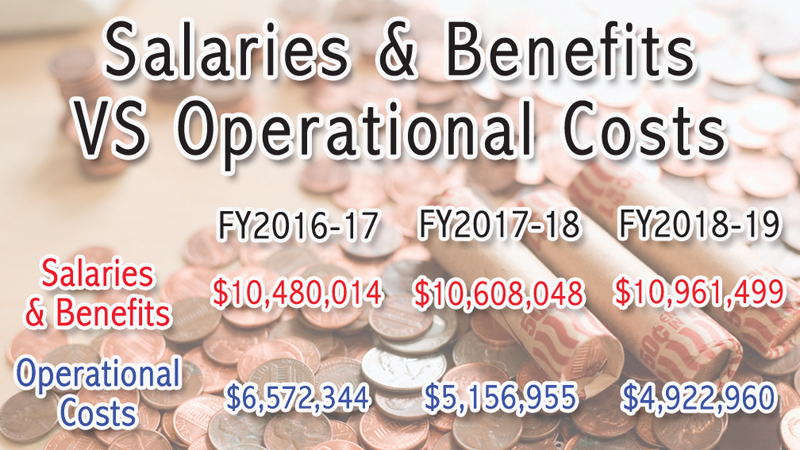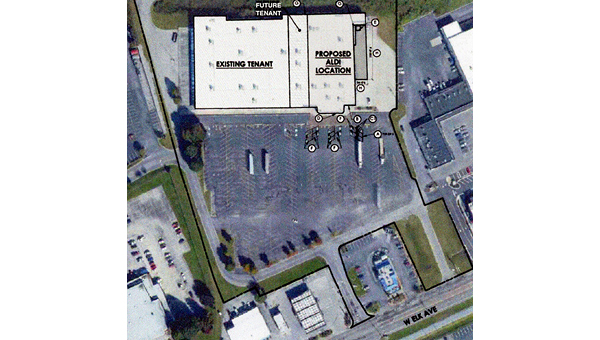Public hearing on proposed county budget set for June 18
Published 3:53 pm Tuesday, June 12, 2018


County residents will have the opportunity to make their voices heard on the county’s proposed budget for the upcoming fiscal year during a public hearing on Monday, June 18.
In a split decision, the Budget Committee approved a budget for 2018-19 that includes a 9 cent property tax increase to cover funding shortfalls as well as cuts to non-mandated outside agencies.
State law requires the county to hold a public hearing on the budget to allow residents the chance to share their thoughts and the tax rate and funding allocations. After the public hearing is held, members of the County Commission may make changes to any portion of the budget they wish except for debt service and school system allocations.
Trending
The public hearing will be held on Monday, June 18, at 5 p.m. in the courtroom located on the second floor of the Carter County Courthouse. The County Commission will meet for their regular monthly meeting that evening at 6 p.m., but the proposed budget will not be one of the items on the agenda.
During the meeting on the 18th, commissioners will receive copies of the proposed budget for their review. The Commission is scheduled to vote on the budget during their meeting on July 16.
While the proposed budget does include cuts in some areas, there are other areas that local officials said cannot be cut.
The most significant expense in the proposed budget for the county is salaries and employee benefits. According to documents obtained by the Elizabethton Star from the Carter County Finance Department, salaries and benefits make up $10,961,499 in the county budget, $1,874,325 in the Highway Department budget, and $35,087,494 in the school system budget.
While the salaries and benefits portion of the budget increased this year, the proposed budget includes no raises for county employees. The budget does include more than $42,000 in increased expenditures to cover state-mandated raises for elected officials, with annual salaries rising between $3,400 and $4,400.
In addition to the unfunded mandates on official salaries, the county saw an increase in the cost of employee health insurance again this year.
Trending
During this year’s budget process, elected officials and department heads were asked to cut their budget requests to try to offset some of the uncontrollable expenditure increases. Some members of the Budget Committee, including Chairwoman Sonja Culler and Commissioner Isaiah Grindstaff, noted the elected officials and department heads had been asked to make cuts to their budgets for several years now.
According to documents from the Finance Department, the operational costs of the county’s general budget, highway department, and school system have decreased in recent years.
During the 2016-17 fiscal year, operational costs for the county’s general budget were at $6,572,344. Those costs dropped to $5,156,955 for the 2017-18 fiscal year, and are budgeted to drop to $4,922,960 in the coming fiscal year. That represents a decrease of $1,649,384 in two years.
In 2016-17, the operational costs for the Highway Department were listed at $2,964,424. In the 2017-18 fiscal year, the costs decreased to $2,172,030. For the coming fiscal year, the operational costs are budgeted to see a slight increase in expenditures — estimated at just over $191,000 — with operational costs anticipated at $2,363,612. However, due to the increase in the state tax on gasoline and diesel, the Carter County Highway Department is receiving around $600,000 in new money from the state to offset that increase as well as provide additional money for projects like paving, snow removal, and bridge work.
The overall decrease in operational costs at the Highway Department from FY2016-17 to the proposed budget for 2018-19 is $600,812.
On the school system side, operational costs have dropped over $3 Million in two years according to information from the Carter County Finance Department.
In the 2016-17 fiscal year, the Carter County School Systems operational costs were listed at $9,556,813. The following year they dropped to $6,554,844. For the upcoming year, operational costs are budgeted at $6,113,346, representing a decrease of $3,443,467 over two years.







